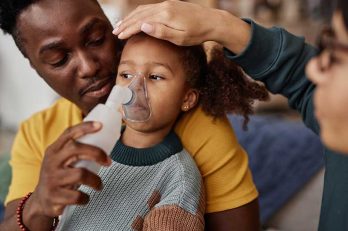Childhood obesity is a major issue that has received increased attention as a result of its rising prevalence and considerable impact on children’s health and wellbeing. Childhood obesity is becoming a global problem, impacting children from all socioeconomic backgrounds and cultures. To effectively manage and prevent pediatric obesity, parents, educators, and healthcare providers must first understand its causes and consequences.
Causes of Childhood Obesity
Childhood obesity is often caused by a mix of genetic, behavioral, and environmental factors. Here are some major contributors:
- Dietary Habits: Eating high-calorie items like fast food, sugary drinks, and processed snacks adds considerably to weight gain.
- Physical Inactivity: As technology advances and lifestyles change, children are increasingly engaged in sedentary activities such as watching TV, playing video games, and spending long periods of time on computers.
- Family Factors: Children frequently mimic their family’s food and activity routines. If a family’s lifestyle includes bad diet and little physical activity, children may be more likely to become obese.
- Psychological Factors: Emotional concerns including stress, boredom, and depression can cause youngsters to overeat as a coping mechanism.
- Socioeconomic Status: Families with inadequate means may have fewer access to healthful meals and safe physical activity venues, contributing to greater childhood obesity rates.
Health Risks of Childhood Obesity
Childhood obesity has far-reaching repercussions beyond physical appearance, affecting general health and causing a variety of medical problems:
- Type 2 diabetes was once thought to be an adult disease, however it is now increasingly being diagnosed in children due to obesity.
- Obese children are more likely to have high blood pressure and cholesterol, which are risk factors for cardiovascular disease.
- Joint Problems: Excess weight can interfere with bone formation and joint tension, leading to disorders such as osteoarthritis.
- Obesity increases the likelihood of sleep apnea and other breathing disorders during sleep, which can impair cognition and behavior.
Strategies for prevention and management
Preventing and controlling pediatric obesity necessitates a comprehensive approach that includes dietary, exercise, and behavioral adjustments. Here are a few strategies:
- Encourage Healthy Eating Habits: Serve healthy grains, fruits, vegetables, lean meats, and low-fat dairy products. Reduce the availability of high-calorie, low-nutrient foods in the home.
- Encourage Physical Activity: Children should get at least 60 minutes of moderate to strenuous physical activity most days of the week. Sports, dancing, playing in the park, and biking are all options.
- Limit Screen Time: Reducing screen time can help promote physical activity and decrease sedentary behavior.
- Behavioral Therapy: For some children, counseling can help them deal with emotional concerns surrounding eating and body image.
- Community Involvement: Schools and community organizations can create programs and environments that encourage healthy behavior.
The Role of Healthcare Providers
Pediatricians and other healthcare providers play a key role in early detection of childhood obesity. Regular monitoring of weight, growth, and body mass index (BMI) aids in early detection and treatment. Healthcare providers can also give families with vital advice and resources for adopting a healthy lifestyle.
Managing and preventing childhood obesity requires a collaborative effort by families, schools, communities, and healthcare professionals to establish circumstances that promote healthy growth and development in children. By recognizing the underlying causes and implementing comprehensive interventions, we may help assure a healthier future for our children.




